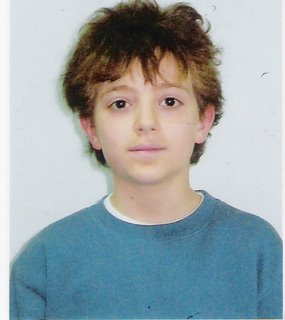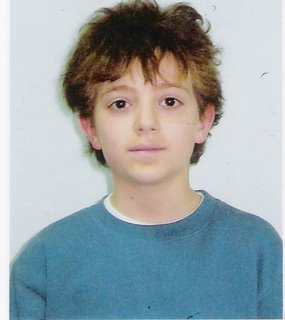I think the case can be made that the reason extremist forms of Islam are spreading is because the Western, democratic world has been losing the battle for the hearts and minds of the Muslim world. I have no proof, but I have this impression that at the end of World War II and for a couple of decades following it, America was the much admired liberator of Europe and the Far East. Hollywood propaganda saw to it that the American dream was what much of the world aspired to. But things started to take a change for the worse.
A scant 34 years later in 1979, the Shah of Iran, a US ally and corrupt dictator, was overthrown by radical Shia clerics and Imams (most notably the Ayatollah Khomeini), seeking to create a theocracy from what was considered a fairly liberal (for a dictatorship, that is) and cosmopolitan regime. Since then, radical Muslim fundamentalism, with a strong hint of anti-Americanism, has spread to almost every country in the Muslim world and to diaspora populations of Muslims in the non-Muslim world.
Some of the groups affected by Islamic fundamentalism were social reform movements liberation movements like Hezbollah in Lebanon and Hamas in the occupied territories.
How do they do it?One of the main reasons that extremist Islamic groups have been so successful is that they prey on poor and uneducated people's fears and insecurities. They spread messages in Mosques during services, setting up some foreign power as Satan. This is usually the US which is commonly known as Big Satan, or Israel which is known as Little Satan, or sometimes other smaller countries that momentarily step out of the Muslim clerics' favor - Denmark for example which did not behead the editor of a magazine for printing an image of the prophet Mohammed, is now known in this part of the world as Tiny Satan.
Some of these fears being implanted in the poor underclasses of the Muslim world aren't very logical to many people outside these countries, but they sure are to millions of people who have little or no education, health care and barley enough food in the cupboard to see them through to next Friday's prayers.
Generally, the big fear implanted in these people is that all these Satans from infidel countries are mounting a modern-day crusade (the Richard the Lionheart kind, not the Billy Graham kind) and invading Muslim lands to convert them to Christianity (or Judaism), make them eat Big Macs, and generally rearrange their centuries-old way of life into something very foreign and very infidel. For reference, imagine telling an Oklahoma cattle rancher that he will have to forego T-bones and eat French Brie cheese on baguettes with Foie Gras (ground up duck liver), washed down with a hardy, yet fruity Bordeaux. Most people don't really like the idea of change. Yet for some reason we just think they should become more like us, and we tell them so.
When you look at all the Muslim countries Big Satan and Little Satan have invaded - Afghanistan, Iraq, Palestine, Lebanon's south, Syria's Golan heights, and oh yeah, all of Israel - you can see that's it's not hard to make a case that there really is a crusade going on.
Another thorn in the side of the Muslim world, and something preying on the clerics is the immense wealth and technological advantages to be found in the Satanic Crusader camps. Since they naturally feel that Islam is the greatest religion in the world (and I'm not saying it isn't), those who adhere to the prophet Mohammed's teachings and the way of Allah, should be the most powerful and wealthy people in the world. But aside from a few wealthy oil sheikhs, most of the people in the Muslim world are really very poor. So, we in the West must be destroyed in order to prove the power of the Muslim faith.
When you have so many poor people living in truly wretched and desperate conditions, as the majority do in most Muslim countries, blaming the government isn't really possible. Individuals do so very tentatively and secretly because this activity usually leads to very severe punishment (e.g. disappearing in the middle of the night, torture, having your tongue cut out, etc.). Corrupt governments whose leaders line their pockets with billions of their people's money, can't very well blame themselves. They have a need to blame some outside party as the source for all the ills of their societies and relieve some of the social pressure that builds up against them from time to time. Again, Big Satan and Little Satan and their crusades are very handy scapegoats.
Radical Islamic movements in these environments do something very effective to win the hearts and minds of these poor people. They look after them. Hezbollah for example runs 4 hospitals and 12 clinics in southern Lebanon. They provide money for education (albeit the radical Islamic kind - high on religion, low on practical skills - that keeps the poor people right where they want them). Hezbollah also provides financial assistance and operates a construction company that goes around after bombings, with trucks full of replacement windows, calling out from a megaphone for anyone who wants their windows replaced. Hezbollah even picks up the garbage. Being a simple man myself, I know all that would make me extremely grateful if I was two days away from starvation with a street full of uncollected garbage and broken windows through which I could smell it.
This is not a new technique. The every communist movement from North Korea and North Vietnam, Mao Tse Tung in China, and Christian missionaries have all used it. It just works.
It is really immportant to stress there are a lot of moderate and tolerant-minded Muslims in the world, both in the west and in Islamic countries. They are our friends
and we need to work with them and listen to them. Moderate Muslims, like my friend Mohammad in the UK can also be our links to defusing radical, extremist Islam.
Coming soon to a neighborhood near youIt's not just in Muslim countries that radical Islam is spreading. The Philippines is not a Muslim country and yet has a growing radical Muslim movement that has kidnapped foreign tourists and committed atrocities. And it is getting closer and closer to home. You might be surprised to learn that in the US, radical Islam is spreading among poor urban blacks, especially in prisons. Louis Farakan is the most prominent black Muslim leader, famous for his anti-Semitic remarks. Muslim leaders in the US are famous for cleaning up tenements and making them safe from gang violence. Again, they are doing what governments should be doing for the weaker segments of the population.
How to win back the minds and hearts of the Muslim worldThe west has plenty (thousands) of public communications academics (my sister is one of them), experts and consultants who study the diffusion of new ideas in the third world. They have a lot of experience in this field and there is really a whole lot of knowledge on the subject. They are already out there improving the lives of very poor people, in many different ways - through maternal care, reducing the spread of AIDS and other vicious diseases and parasites, etc. Many of them are in Muslim countries (remember, most Muslim nations are among the poorest in the world).
Now, I'm not writing this because I want to find more work for my sister but because I think that it's time that many of these experts need to be redeployed to boost poor people's awareness of the damage that intolerance and extremism can do on the one hand, and the benefits of accepting others with differences.
The services these public communications experts are currently helping to provide, which are supported by USAID, some monumentally wealthy charitable foundations and non-governmental organization (NGOs) should start coming with pro-democratic, pro-tolerance messages. It will be the role of the international community to get together to pressure these countries along a slow and steady and intelligent path to tolerant, pluralistic democracies. The need for change should be balanced with the need for social stability - something we learned from Iraq, that dictators can provide.
Instead of declaring war on the governments (or pseudo governments like Hamas or Hezbollah)that promote religious extremism, the West should be conducting a communications war. Governments should be isolated for not conforming to certain standards or for not having a real plan for social reform. If they resist international pressure, a communications war, not a real one, should be waged. Pro-democracy groups and pro-social reform groups should be encouraged from within the intellectual or other inclined ranks of the country.
We need to create high-quality, entertaining, local-language TV and radio programming that actually competes with local, state-sponsored programming. Leading directors and producers, combined with exiled actors, should be recruited for the effort, much in the same way Hollywood was once recruited to sell war bonds. In extreme cases, we should jam local programming and override it with our own. We should drop leaflets from the air and use the Internet to deliver positive messages (maybe in the form of amusing email attachments that we all get) that the experts will formulate.
The West should come up with better, more realistic plans for dictatorial regimes to follow along the road to social reform. Invading a country (Iraq) obviously doesn't work, neither does assassinating its leaders (just ask the CIA for the list - preferably someone with a lot of years of seniority).
The US has tied a lot of its foreign aid and other incentives to promoting civil rights in countries like China and Russia. I think the connection between foreign aid needs to be made even closer. For example, donated bags of rice should come with pro-reform slogans or cartoons printed on the side. Cereal companies put games and nutritional information on their packages and milk cartons have the faces of missing children, so too donated foods could have pro-western, pro-social reform games and information printed on them.
The problem with the above suggestions, is that they take many years of consistent effort with a lot of trial and error. It is a less expensive solution than war and it can save thousands or millions of lives. It is a long-term solution that could work eventually turning some of the poorest countries into valuable trading partners. On the other hand, going to war costs many times more money and is a short term fix whose duration could be timed to be coincide with a 4 or 8-year election cycle.
The above is a good argument for all Western governments to invest in effective social programs abroad. For the US in particular, which has the most to gain, it is also a good reason for its government to improve the way it cares for the needs of the weaker segments of its population. Because if it doesn't, Louis Farakhan will.
Shalom,
Yves



